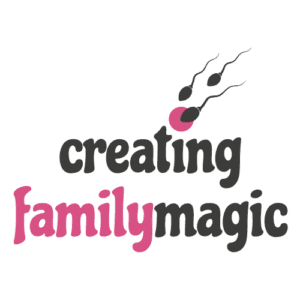Fertility Treatment in Italy: What Single Women and Lesbian Couples Need to Know

Fertility treatment regulations vary widely across Europe, and for single women and lesbian couples, navigating these differences can be particularly challenging. This article examines the current landscape of fertility treatments in several European countries, with a focus on recent developments in Italy.
Italy’s Evolving Fertility Treatment Landscape
Key Legislative Changes
Italy, known for its stringent fertility laws, has made significant updates to its guidelines on medically assisted reproduction. These changes are driven by court rulings aimed at protecting women’s rights and addressing the country’s declining birth rate.
- Inclusion of Separated and Widowed Women
- As of March 2024, women who began fertility treatment with a male partner but have since separated or been widowed can continue their treatment. The key requirement is prior consent from the partner.
- This update follows the Court of Cassation’s 2019 ruling, which allows children born from assisted reproduction to have their deceased partner recognized as the legal father.
- Eligibility Expansion
- Italy’s Health Ministry now includes individuals with genetic conditions, HIV, Hepatitis B, or C within the fertility treatment guidelines.
- Heterologous assisted reproduction, using donor eggs and sperm, is permitted for cases of absolute and irreversible infertility.
Restrictions and Requirements
Despite these progressive steps, Italy maintains several restrictions:
- Single Women and Same-Sex Couples: Generally excluded unless the single woman can prove a previous heterosexual relationship at the time of embryo creation.
- Social Egg Freezing: Available only in private centers, with costs fully borne by the woman.
Legal and Ethical Considerations
- Consent for embryo transfer remains irrevocable post-separation to protect women’s well-being, as per the Constitutional Court.
- Both partners must provide informed written consent before and during the procedure, ensuring clarity on legal and parental responsibilities.
Fertility Treatment Access Across Europe
Portugal
In Portugal, the legal landscape for IVF treatments is inclusive but comes with specific guidelines. Women up to the age of 50 are eligible for treatment, with no age limit for male partners. The country allows heterosexual couples, single women, and female couples to receive treatment, including the ROPA (Reception of Oocytes from Partner) method. However, male couples cannot receive IVF treatment.
Gender selection is generally prohibited, except to prevent serious genetic diseases. HIV positive patients, as well as those with HCV/HBV, may receive treatment, depending on the clinic’s policies. There is a strict limit on the number of embryos that can be transferred, set at two embryos per cycle, although the recommended limit for women over 35 is one embryo.
Are you interested in a treatment in Portugal? Get your discount TODAY with the code HANNASCHILLER. Simply send an email with the code to Ferticentro and arrange your free appointment for an initial consultation.
Greece
In Greece, same-sex female couples cannot formally seek treatment together; the individual pursuing treatment must sign a document stating they are pursuing treatment as a single. There is no IVF access for ART for intersex individuals, nor recognition of the same-sex partner as a legal parent. However, single women and unmarried couples can access assisted reproduction with a notarial deed.
North Cyprus
North Cyprus offers a flexible approach to IVF treatments, with no marriage requirement. Single women, regardless of their marital status, are eligible to receive treatment using donor sperm. Younger single women can also choose the non-invasive IUI treatment with donor sperm, which is typically recommended for those in their 20s or early 30s.
Denmark
Denmark provides ART access to single women until the age of 46, with public funding available if the referral is made before age 40. Reciprocal IVF is not yet possible but may change with future surrogacy law updates.
Netherlands
The Netherlands offers the ROPA method (shared motherhood) for lesbian couples, which involves thorough medical and psychosocial assessments. Single women and same-sex couples often receive referrals to specialized centers which support their needs through affiliated sperm banks and psychological counselling.
Spain
Spain is one of the most progressive European countries regarding fertility treatment, providing extensive access to single women and lesbian couples. Spanish law allows anonymous sperm and egg donation, and the country’s clinics are well-regarded for their advanced technologies and high success rates.
France
France has recently updated its laws to allow single women and lesbian couples access to fertility treatments, including IVF. This change, effective from 2021, reflects a growing recognition of diverse family structures and aims to make fertility services more inclusive.
United Kingdom
In the UK, fertility treatment is more accessible for single women and same-sex couples compared to Italy. The National Health Service (NHS) provides fertility treatments, but eligibility often depends on local clinical commissioning groups (CCGs). Private clinics offer more flexible options but at a higher cost.
Germany
Germany allows fertility treatment for single women and lesbian couples, but regulations vary by state. In North Rhine-Westphalia, clinics face legal issues when treating single women due to differing medical association regulations, resulting in limited availability. Nationwide, regional disparities exist, with some clinics not providing services to single women. Same-sex partners are not legally recognized as parents through ART; they can only achieve legal parenthood through stepchild adoption, as the law defines the birth mother as the sole initial legal parent.
Frequently Asked Questions (FAQs)
1. Can single women access fertility treatments in Italy?
- Single women can only access treatments if they can prove they were in a heterosexual relationship at the time of embryo creation.
2. Are lesbian couples eligible for fertility treatments in Italy?
- No, Italian law excludes same-sex couples from accessing fertility treatments.
3. What are the new inclusions in Italy’s fertility treatment guidelines?
- People with genetic conditions, HIV, Hepatitis B, or C are now eligible for treatment.
4. Can embryos be transferred posthumously in Italy?
- Yes, if prior consent was given by the partner, embryo transfer can occur even after the partner’s death.
5. How does Italy’s approach to fertility treatments compare to other European countries?
- Italy has stricter regulations compared to countries like Spain and the UK, which offer more inclusive and accessible fertility treatments.
Conclusion
Navigating fertility treatments as a single woman or lesbian couple in Europe can be complex due to varying national laws. Italy has made strides in inclusivity, but significant restrictions remain. Understanding the legal landscape and available options is crucial for those seeking to start or expand their families through assisted reproduction.
For more detailed information on fertility treatments in other European countries and the latest updates, stay tuned to our blog.
